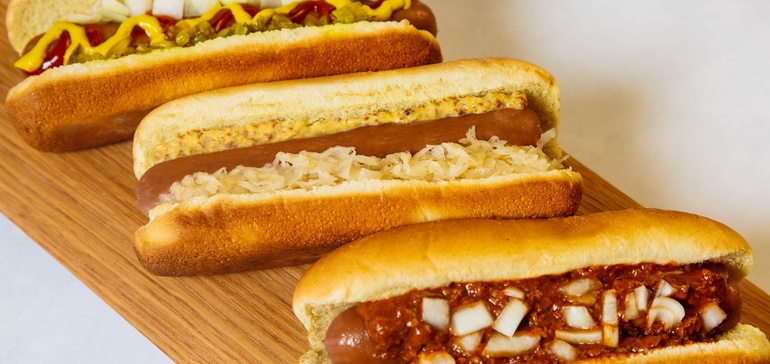Upside Foods develops animal-free growth medium for cell-based meat

Dive Brief:
- Upside Foods has developed an animal-component-free cell growth feed, which it uses to help its cells grow into meat. The company has been working toward this goal for years.
- The cell-growth medium contains essentially the same components as traditional animal growth feed — amino acids, lipids, sugars, vitamins, minerals, water and other nutrients to help cells thrive, said Upside Foods Senior Vice President of Product and Regulation Eric Schulze. The animal-free growth medium works as effectively as its predecessors that used proteins taken from animals, he said, causing no big changes in growth process or time.
- Growth medium is one of the pricier components of cultivated meat. Schulze would not comment on the cost of the animal-free growth medium, but said that Upside’s cultivated chicken products are currently at a cost comparable to premium animal-derived chicken, and are less expensive than market prices of some conventional cuts of poultry.
Dive Insight:
In order to become a true player in the meat market, there are several things the cell-based space needs to accomplish. One of the more important is having products that are at a price that is similar to — or even less than — animal-derived meat. The cost of growth medium figures heavily into that price. The first cell-based hamburger — which was made from beef cells grown in expensive animal-derived fetal bovine serum — cost roughly $325,000.
Schulze said Upside Foods has been working on the animal-component-free serum for years with a team of in-house experts. According to a release from Upside Foods, some of these team members are former leaders from leading biotech and pharmaceutical companies. They started the process by removing fetal bovine serum from the growth medium and then replacing some of it with animal-derived proteins and other components, Schulze said. Those components have been replaced in the current iteration.
All companies that are using technology to produce products based on cells, from pharmaceuticals to medical devices to food, are working to remove animal components from their growth media. Schulze said it can take decades to develop the right one, and he’s proud that Upside Foods, founded as Memphis Meats in 2015, was able to do it in a fraction of the time.
Schulze said he thinks this development will be “encouraging our industry and other industries to, again, move and question and refine their medium as well, to produce animal-component-free media.”
Other companies working on cultivated meat have developed less costly, plant-based growth media options. Mosa Meat, the Dutch company that arose out of the 2013 cell-based hamburger, removed all fetal bovine serum from its growth medium in 2020, which led to an 88-time reduction of its cost. Mosa Meat announced in May it also removed all animal components from the medium it uses to grow cell-based fat, making the serum’s cost in March just 1.52% of its price in September 2019.
Israel-based Future Meat Technologies also has an animal-free growth medium that was developed in partnership with Archer Daniels Midland. Future Meat’s robotic analytical system scanned through different plant proteins, finding ones that could provide vital nutrients to growing cells. The company’s bioreactors also have a cleaning mechanism, meaning that growth medium can be reused. In February, Future Meat said this had lowered the price to make a cell-cultured chicken breast to $7.50.
Other companies are working toward this goal. In January 2020, animal nutrition company Nutreco partnered with Mosa Meat and BlueNalu to help develop an animal-free growth medium. And just this week, Aleph Farms announced a partnership with German chemical manufacturer Wacker to produce proteins needed to make animal-free growth media. The proteins Wacker develops will also be available on the open market to other companies in the space.
Schulze said Upside Foods’ animal-free growth medium will be subject to federal regulation by the USDA and FDA as part of the departments’ full look at the company’s eventual products. To start out, Upside Foods used this growth medium to make chicken hot dogs and nuggets, according to the press release, but Schulze said the company will eventually use it throughout its product portfolio.
Source: fooddive.com

